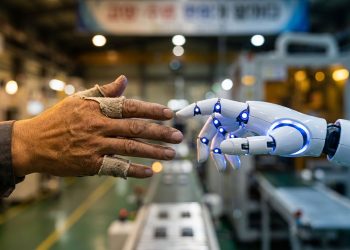Hyundai Mobis will secure South Korea’s first high-performance image recognition technology based on deep learning that recognizes vehicles, pedestrians and road terrain by the end of this year. Mobis is planning to apply this technology to front camera sensors that support self-driving technology starting from 2022. The technology, which recognizes vehicles, pedestrians and road terrain, is based on a global level of video recognition Artificial Intelligence technology that uses video data through automation techniques.
If Mobis secures this technology this year, it will have the most software and hardware-specific technologies that are applied to self-driving camera sensors. It is planning to raise its performance of object recognition, which is at the core of image recognition technology, to a level on par with global leaders. It will also strengthen cooperation with Hyundai Motor to apply Deep Learning technology in camera fields. Through joint development with finished cars, it is planning to develop image recognition technology based on deep running in front of camera sensors for autonomous driving and the 360° Surround View Monitor (SVM).
By combining this image recognition technology with its own radar, Mobis is planning to increase performance of sensors and lead competitive edge in self-driving technologies through data convergence between cameras and radars.
Mobis has doubled its professional workforce in domestic and foreign technology research institutes for the past two years. Out of more than 10 self-driving test cars operating around the world, two are being used exclusively for image recognition and will be expanded to five within this year. It will also increase investments such as related infrastructure by 20% every year. To secure global competitiveness of deep running image recognition technology, foreign research institutes are also actively using it. Hyundai Mobis India Research Institute is developing a 3D-based simulator that supports learning of video-recognition Artificial Intelligence and video synthesis, while the Vietnam Research Institute is supporting processing of self-driving data.
Mobis conducted equity investments worth 8 billion won (about US$7 million) and 5.5 billion won (about US$4.8 million), respectively, to South Korea’s Stradvision and China’s Deep Glint, which secured unique capabilities in global technology in the object recognition field outside the vehicle. Recently, strategic cooperation is also underway with Russia’s largest portal Yandex, which has a special organization for deep learning, and joint development of Level 4 Robo Taxi Platform by 2020.
“Our own algorithms and know-how accumulated through development of video recognition technology can be expanded to other products related to self-driving technology,” said Gregory Baratoff, executive director of Hyundai Mobis self-driving development center. “We are also planning to use this technology to greatly increase competitive edge in ICT based on software and to explore opportunities for new businesses,” he added.







